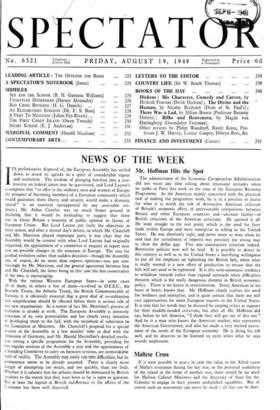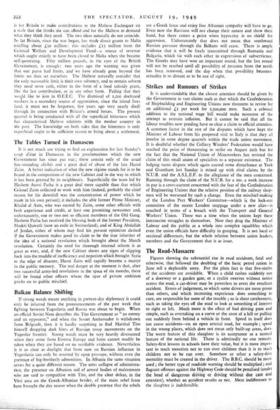Maltese Cross
If it were possible to assess in cash the value to the Allied cause of Malta's resistance during the last war, or the potential usefulness of the island in the event of another war, there would be no need for Maltese Cabinet Ministers and the Secretary of State for the Colonies to engage in their present undignified squabbles. But of course such an assessment can never be made ; all that can be done
is fur Britain to make contributions to the Maltese Exchequer on a scale that she thinks she can afford and for the Maltese to demand what they think they need. The two ideas naturally do not coincide. St, far Britain, since the war began, has made direct grants to Malta totalling about £50 million: this includes £13 million from the Colonial Welfare and Development Fund—a source of revenue which ought strictly to have been closed to Malta when she became self-governing. Fifty million pounds, in the eyes of the British Government, is enough: two years ago the warning was given that our purse had limits, and we have already gone beyond the limits we then set ourselves. The Maltese naturally consider that the only reasonable limit is their own solvency, and to remain solvent they need more cash, either in the form of a food subsidy grant, like the last contribution, or in any other form. Failing that they would like to join in O.E.E.C. The dismissal of 1,200 dockyard workers is a secondary source of aggravation, since the island lives (and, it must not be forgotten, five years ago very nearly died) through its connection with Britain's armed forces. The present quarrel is being conducted with all the superficial bitterness which has characterised Maltese relations with the mother country in the past. The knowledge on both sides that the bitterness is only superficial ought to be sufficient reason to bring about a settlement.



































